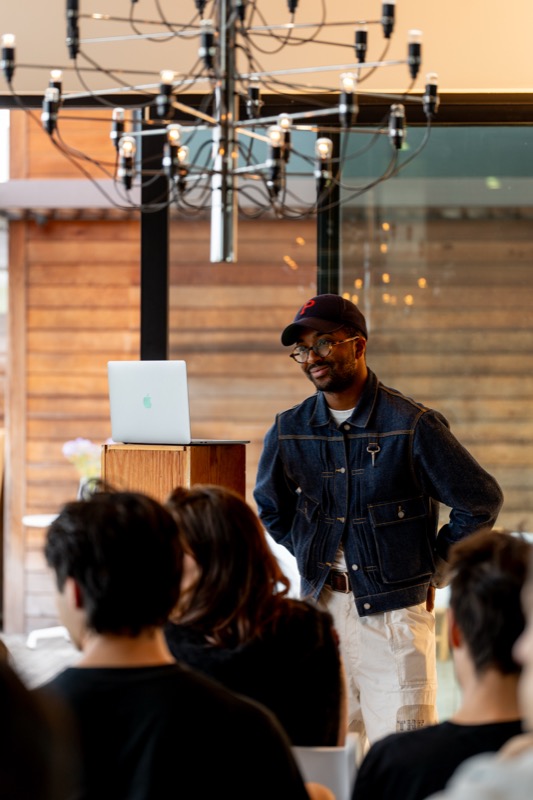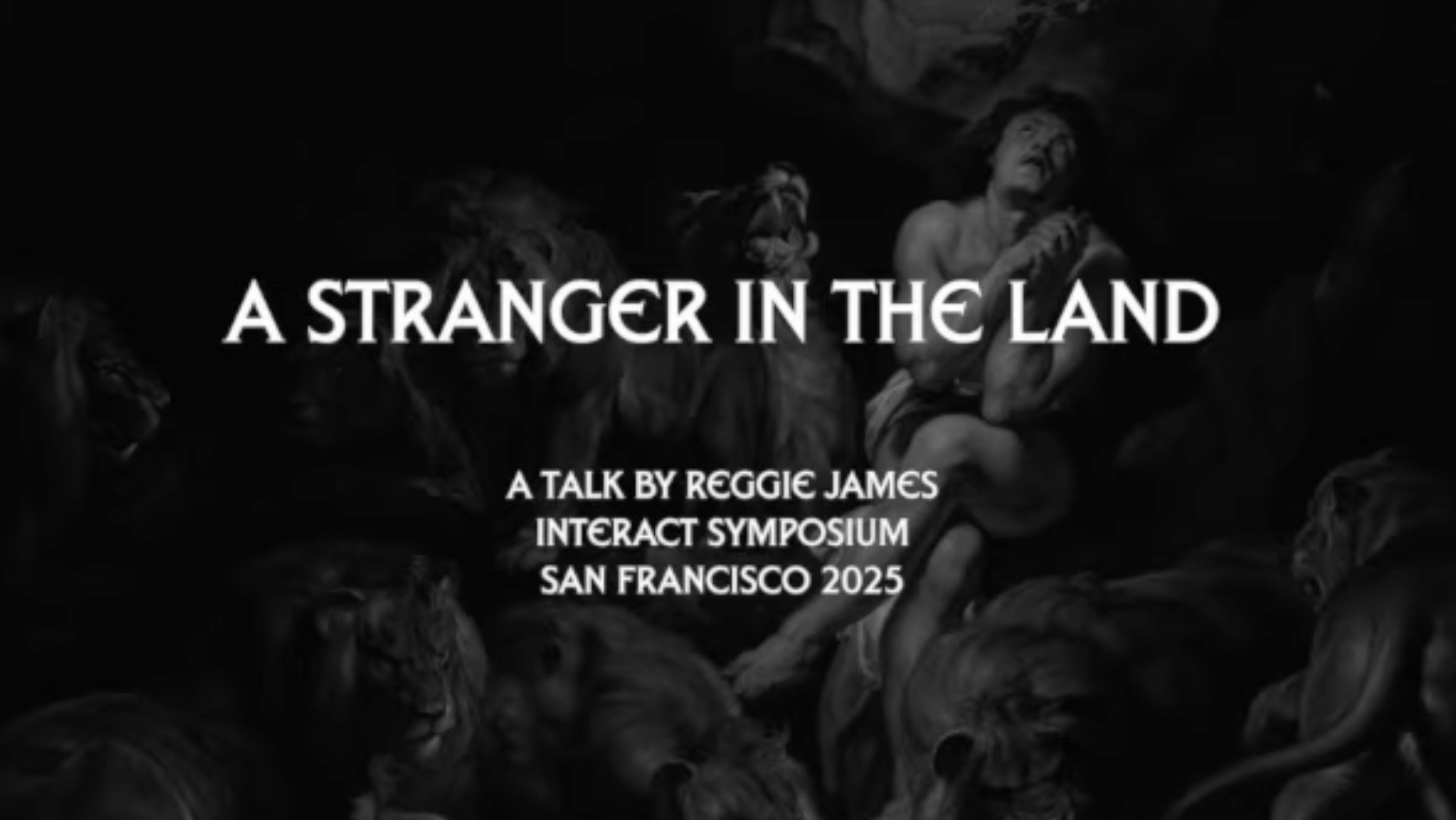
Reggie James

Workshop
action shot!
What did you explore in your Residency?
The problem is that technology has been constructed from a predominantly post-modernist framework, with its values holding all the flaws of post-modernism. Crisis of representation. Relativism. Post-Materialism.
When we take it up to another level of abstraction, beyond even emerging philosophies such as effective accelerationism, we can see that modern technology has been a deeply secular project.
So the question becomes: what to make of our faith practices as it must wrestle with an accelerating environment?
For example: it can't be as simple as calling pornography sin. That is obvious and doesn't get at the root issue. Instead we must look to what the Bible says about our attention – "giving the first of our fruits". This is not a physical gift, but one of our awareness. Which is currently under constant stress and is typically given to our phones. And really our phone is just the mechanism, what we are really giving our attention to is the underlying network. Are humans, by their nature, network worshipers due to their own self-worship? Might this be the ultimate form of idolatry present since the fall?
It was this style of questioning that set off arrows of interests and research. This led me to consume copious amounts of sermons, lectures, scriptures from the Bible, commentaries on those scriptures, and supporting texts from the majority of the Residency. Which is to say, I was allowing the living word of God to minister to me through this question, more than I was trying to come up with answers myself. I think this is what made my personal Residency journey a little unique, and ultimately what shaped me during my time in the Residency.

A Talk
By Reggie James
Key insights and learnings
We do not take the consequences of original sin as seriously as we should - as we relate it to our contemporary / functioning worldview. When we do, we can currently see (and at times foresee) how human efforts of renewal fall short. (additionally I might add, it helps us dismiss human efforts that have absolutely zero to do with renewal as wasted energy… simply increasing entropy) Why we are, seemingly, constantly frustrated with our environment. And why cognitive defenses to the environment are rapidly deteriorating as we "progress" in time.
Each one of these could be another booklet if given the proper time to research and focus.
What's next?
I'm thinking about shopping the booklet around to publishers. Expanding on it / adding additional questions to answer. It has led me towards a unique set of beliefs that may or may not be the foundation for a new type of research institution. I'm still working through this. Most recently I gave a version of the Symposium talk at my parent's church, opening the door to a more Christian community discussion compared to a technologist centric one.
Favorite memory from the Residency
Sitting with Alexia on the last full day of Symposium, in one of the offices, answering a string of questions about faith.
How has Interact shaped your relationship to technology?
I'm not sure yet. I think it widened my aperture to not think solely through the lens of company formation. There are many wrappers that can leverage technology, build new technology, introduce new schools of thought - that aren't a company. This feels obvious, but also bubble popping for me personally.
About Reggie
Reggie James is a writer, product designer, and investor. He previously co-founded and served as CEO of Eternal, an AI gaming and media platform that was recently acquired by the artist Grimes.
Reggie grew up in the Poconos and is the son of faithful parents. Spending time in short term missionary work throughout Zambia, Bolivia, and disaster relief work in the United States - they now lead a church in Pennsylvania.
Reggie graduated from Wharton at the University of Pennsylvania in 2017. A self designed concentration, his thesis centered around "why do we design the specific set of technology we have, and why do some garner more capital attention than others?" He writes about technology, culture, and faith on his Substack and has spoken at The Long Now Foundation, Parsons Design School, and Hereticon.
Recently he co-created and independently published the book "HARDWARE 2024". 260 pages of design photography, interviews, and essays from the year's defining hardware launches including Teenage Engineering, Humane, Rabbit, Nothing, Opal, and much more.
Reggie's focus since completing the acquisition of his company has been his research into how we might use Reformed Theology to understand and navigate our technological environment with more dignity.
Artifacts & Links
